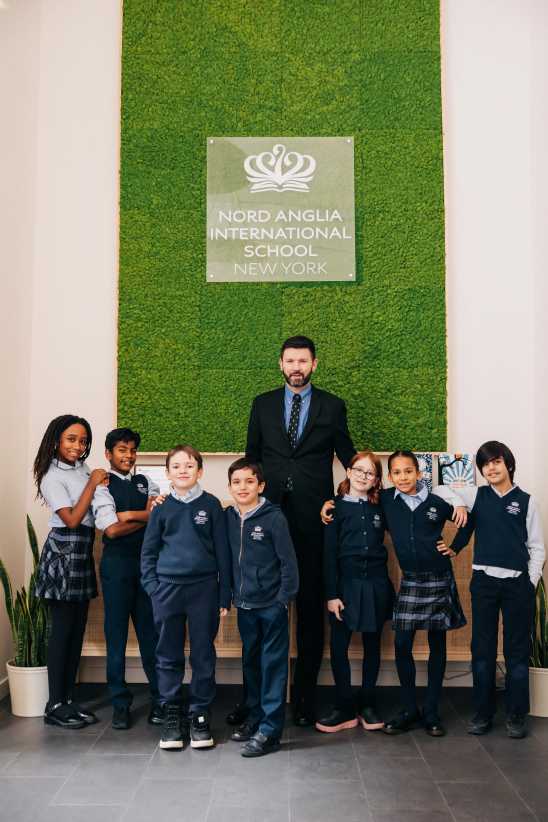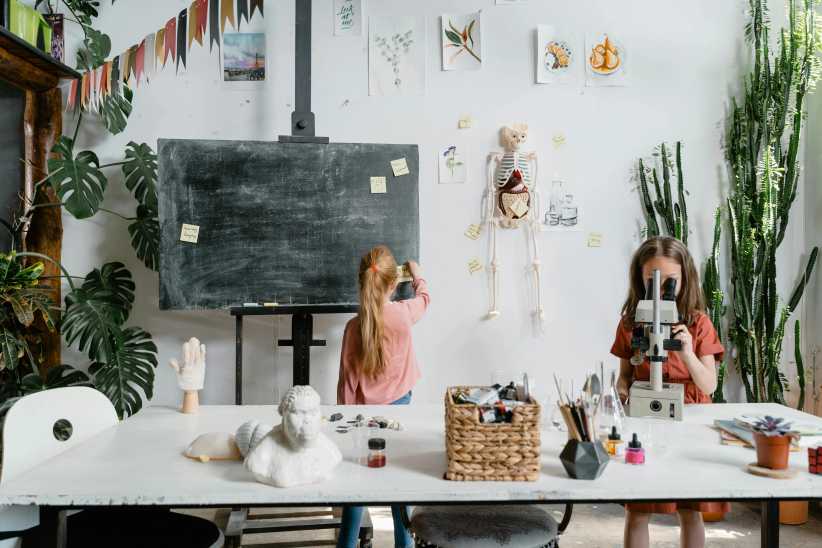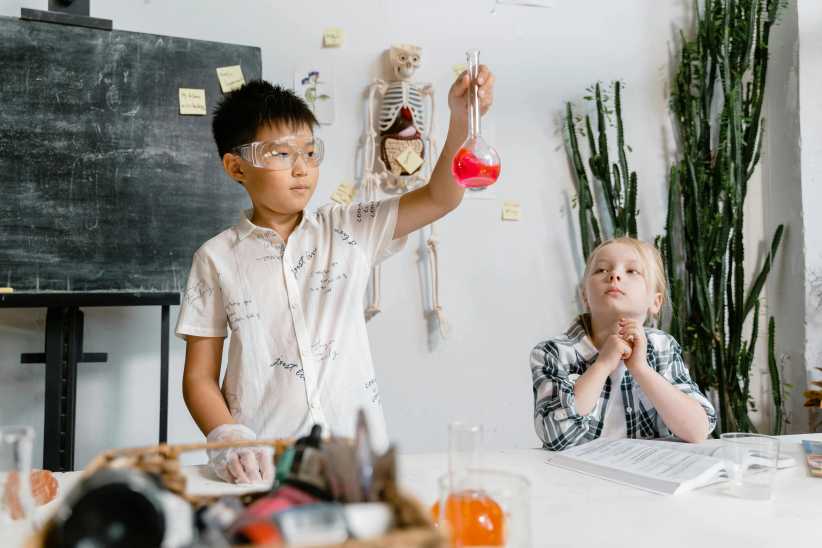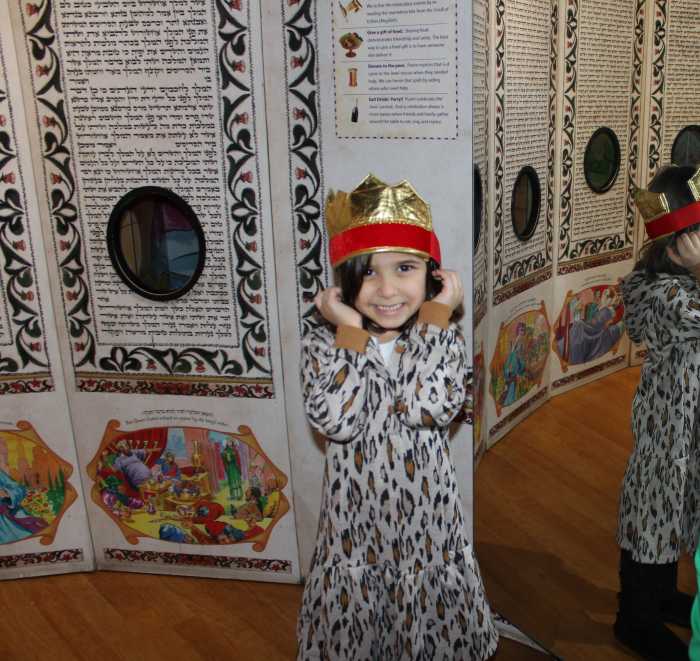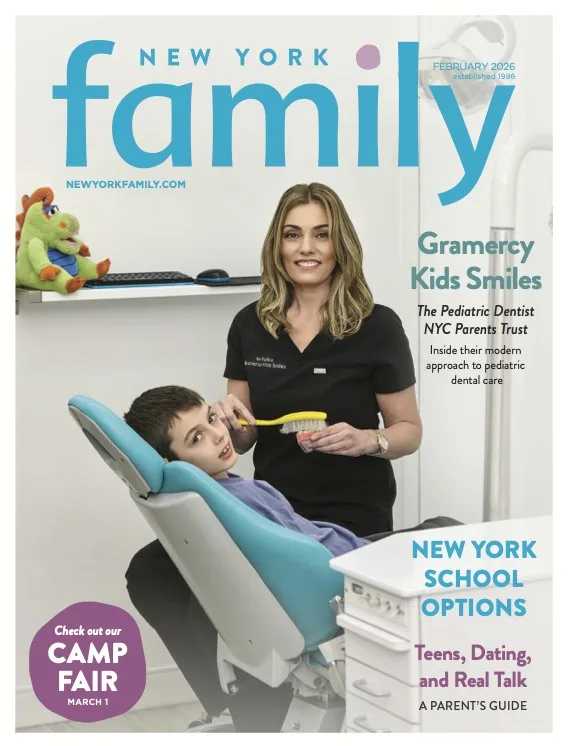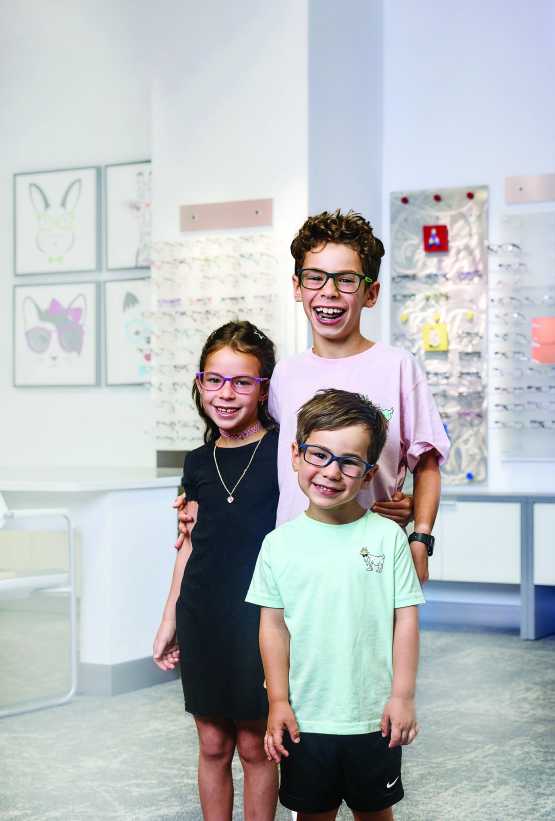
SUNY Optometry Keeps Families’ Vision in Focus
When most parents think of back-to-school checklists, eye exams often don’t make the cut. Yet vision plays a central role in learning, development, and overall well-being. That’s why during National Vision Awareness Month, the University Eye Center at the State University of New York (SUNY) College of Optometry reminds families of the importance of eye health.
With one of the largest eye care clinics in the country, SUNY College of Optometry is the only optometry program in New York State. Nearly half of the licensed optometrists in the state are graduates of this program. However, the college’s focus is not only on training top-tier optometrists, but also on ensuring families across New York have access to high-quality eye care.
At SUNY’s University Eye Center in midtown Manhattan, optometrists provide care to patients of all ages, and they offer specialty services, such as pediatric optometry, vision therapy, low-vision rehabilitation, care for individuals with special needs, as well as test for and manage several eye conditions.
We spoke with SUNY Optometry experts to raise awareness about eye care and share practical ways parents can keep their families’ vision healthy.
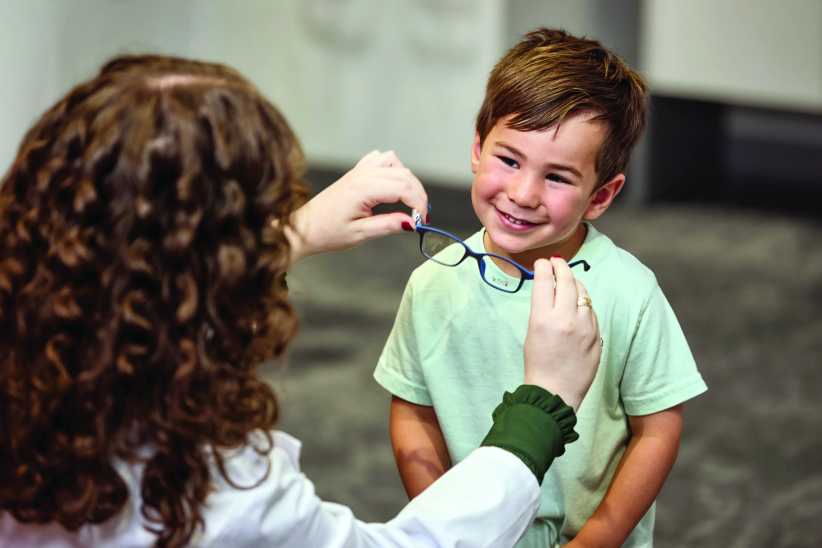
Improved Learning & Lifelong Benefits
When kids struggle academically, their eyesight may be to blame. “Many children experiencing academic difficulties actually have an undiagnosed vision issue,” says Dr. Rebecca Heaps, assistant clinical professor at SUNY Optometry’s Barbara Saltzman Center for Pediatric Eye Care. “The reality is that many parents don’t schedule eye exams until a child reports trouble seeing the board. By then, issues may have already impacted learning or development.”
Catching problems before they interfere with everyday life is a critical component of healthy eyes. “Regular examinations are necessary for the early detection and prevention of sight-stealing conditions like glaucoma, diabetic retinopathy, and macular degeneration later in life,” adds Dr. Matthew Vaughn, associate clinical professor at SUNY and the University Eye Center. “Raising awareness can help prevent avoidable vision loss for at-risk groups such as children.”
Psst…Check Out The 2025 Guide to After-School Programs & Activities in New York
Care Beyond the Classroom
SUNY Optometry and its University Eye Center remain at the forefront of vision care, giving families access to cutting-edge treatments and advanced technologies. “In addition to annual eye exams, we operate a comprehensive myopia management clinic designed to slow the progression of rapidly progressing nearsightedness in children, which is a growing concern in today’s digital world,” says Vaughn. “Our vision rehabilitation clinic uses state-of-the-art equipment to address eye coordination, teaming, and focusing issues, as well as eye turns and amblyopia (lazy eyes), that can significantly impact reading and learning abilities.”
Their dedication to outreach also sets them apart. “Throughout the year, the University Eye Center at SUNY offers free screenings to help improve access to care,” Heaps notes. “Additionally, we are often at various community and health fairs sponsored by other organizations,” she adds.
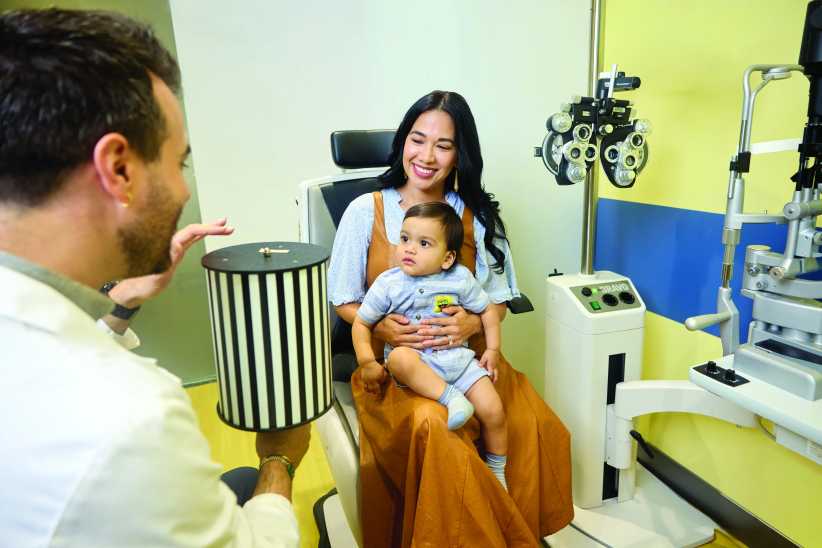
Tips for Parents
To keep family vision on track, Heaps and Vaughn recommend a simple plan:
Start early.
“The American Optometric Association recommends a child’s first comprehensive eye exam occur between 6 and 12 months old, with follow-ups at age 3 and again before kindergarten,” says Heaps. “This timeline is important because many common eye conditions develop silently.”
Practice the 20-20-20 rule.
“When using screens, every 20 minutes look at something 20 feet away for 20 seconds,” Vaughn advises. “Make sure devices are held at proper distances (about an arm’s length for tablets and computers).”
Get outside.
Heaps says that daily outdoor time is crucial. “Natural light exposure helps prevent or slow nearsightedness progression.”
Eat healthy for eye health.
Vaughn adds that good nutrition matters, too. “Leafy greens, colorful fruits and vegetables, and omega-3s all support eye health.”
Notice the warning signs.
Heaps and Vaughn caution parents to watch for symptoms in their kids while reading or doing homework, like frequent squinting, complaints of blurry or double vision, headaches, losing their place, or skipping lines. These are signs to take them to an eye care professional.
Psst…Check Out Free Kid and Family Activities in NYC: 10 Free Things to Do This Week
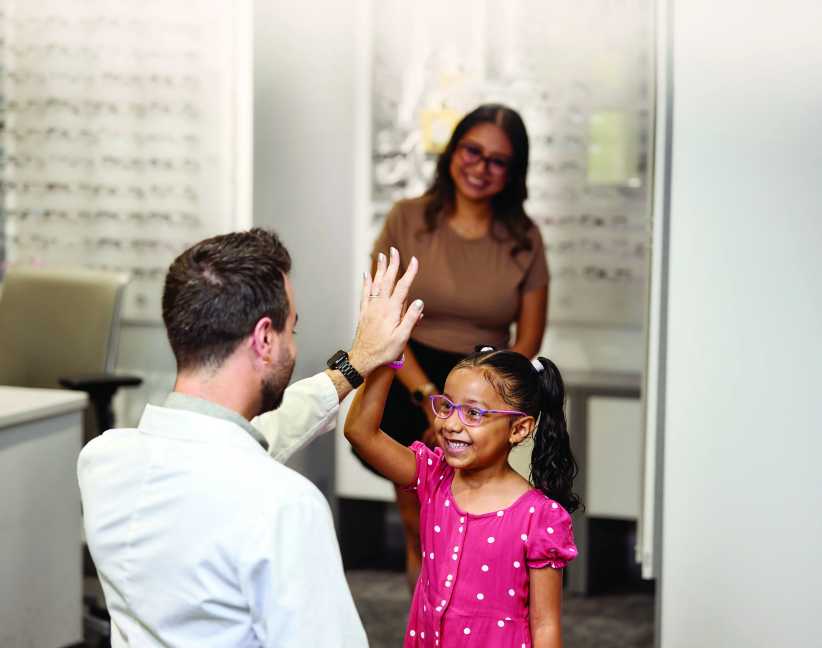
SUNY Optometry and the University Eye Center are excited to welcome families to their facilities. Their doctors and student clinicians work together in a comfortable environment to make visits successful for children of all abilities and are here to support your family’s eye health journey!
SUNY College of Optometry is located at 33 West 42nd St., Manhattan. For more information, visit sunyopt.edu.


